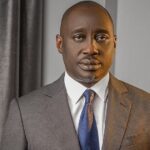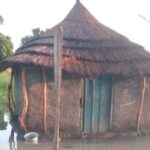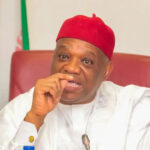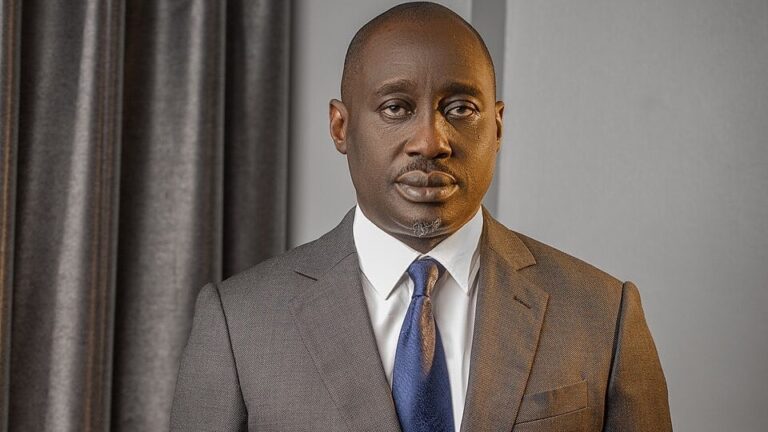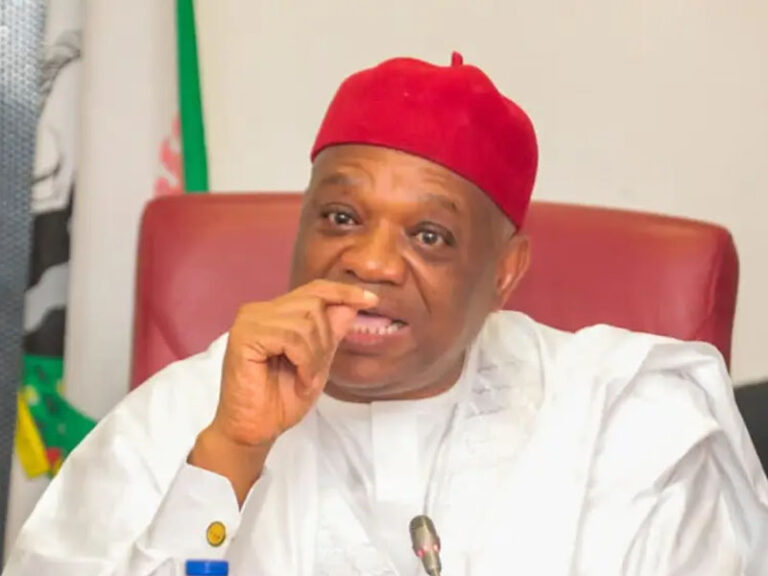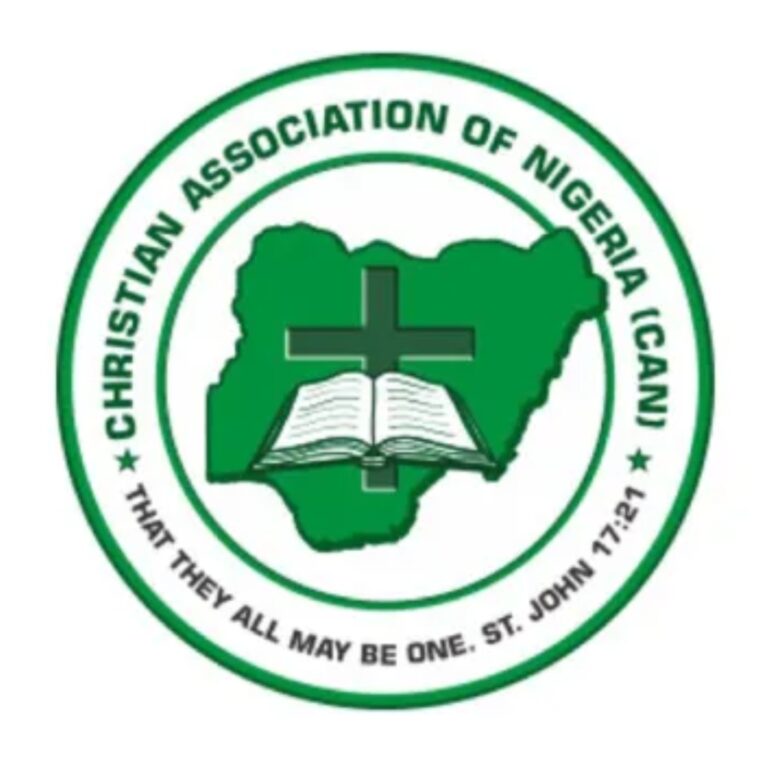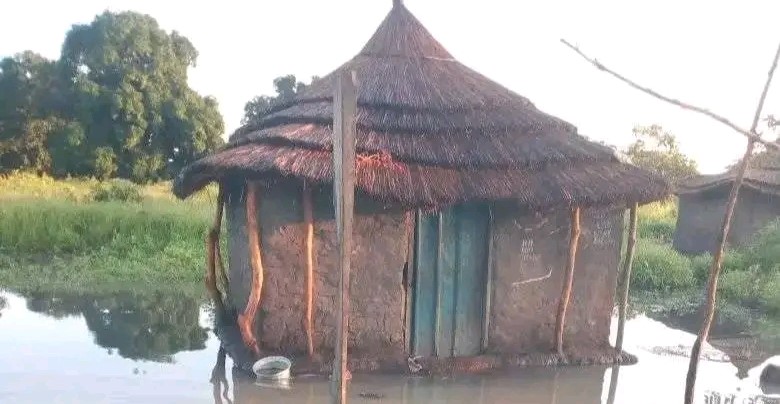
Deprecated: Creation of dynamic property TPAPI_Actions::$params is deprecated in /home2/thejubamirror/public_html/wp-content/plugins/trustpulse-api/TPAPI/Actions.php on line 54
Authoritative And Reliable NewsMon, 10 Nov 2025 16:38:43 +0000en-US
hourly
1 https://wordpress.org/?v=6.8.3https://thejubamirror.com/wp-content/uploads/2025/03/cropped-344060759_805423431006934_8284320095746003392_n-32×32.jpg
3232
https://thejubamirror.com/2025/11/10/oyet-nathaniel-elevates-top-splm-io-acting-commanders-in-leadership-reshuffle/#respondMon, 10 Nov 2025 16:38:29 +0000https://thejubamirror.com/?p=54028 The SPLM/A–IO Acting Chairman and Commander in Chief, Rt. Hon. Gen. Oyet Nathaniel Pierino, announced new promotions and appointments within the movement’s military and administrative structures in Unity State, Nov. 10, 2025. In a statement from Juba, Oyet promoted Maj. Tito Gatluak Puok, Capt. Stephen Gai Riak, and Maj. Chuol Puot to the ranks […]
The post Oyet Nathaniel elevates top SPLM-IO Acting commanders in leadership reshuffle first appeared on The Juba Mirror.
]]>
The SPLM/A–IO Acting Chairman and Commander in Chief, Rt. Hon. Gen. Oyet Nathaniel Pierino, announced new promotions and appointments within the movement’s military and administrative structures in Unity State, Nov. 10, 2025.
In a statement from Juba, Oyet promoted Maj. Tito Gatluak Puok, Capt. Stephen Gai Riak, and Maj. Chuol Puot to the ranks of colonel and lieutenant colonel, respectively, recognising their dedication and service to the SPLA–IO.
He also appointed four new county commissioners in Unity State:
- Hon. James Yoach Bading — Commissioner of Leer County
- Hon. Stephen Gai Riak — Commissioner of Panyijiar County, replacing Col. Hon. Majok Chuol
- Hon. Bany Makon Chany — Commissioner of Koch County
- Hon. Tito Gatluak Puok — Commissioner of Mayiandit County
Additionally, Lt. Col. Chuol Puot was named deputy military spokesperson of the SPLA–IO.
According to the statement, the changes are part of an ongoing restructuring effort to strengthen governance and command coordination within Unity State and the broader SPLM/A–IO movement.
The post Oyet Nathaniel elevates top SPLM-IO Acting commanders in leadership reshuffle first appeared on The Juba Mirror.
]]>https://thejubamirror.com/2025/11/10/oyet-nathaniel-elevates-top-splm-io-acting-commanders-in-leadership-reshuffle/feed/0
https://thejubamirror.com/2025/11/10/audible-cry-of-a-deprived-citizen/#respondMon, 10 Nov 2025 16:13:29 +0000https://thejubamirror.com/?p=54019By Dr. Sunday de John The closure of South Sudanese embassies in most country in the world is not just an embarrassment for the ambassadors; it reflects poorly on all of us as a nation. This significant setback undermines our diplomatic standing, disrupts vital services, and signals that we are in a dire financial situation […]
The post Audible cry of a deprived citizen first appeared on The Juba Mirror.
]]>
The post Audible cry of a deprived citizen first appeared on The Juba Mirror.
]]>https://thejubamirror.com/2025/11/10/audible-cry-of-a-deprived-citizen/feed/0
https://thejubamirror.com/2025/11/10/opinion-deepening-partnership-chinas-modernization-agenda-and-south-sudans-path-forward/#respondMon, 10 Nov 2025 10:30:35 +0000https://thejubamirror.com/?p=54013BY OKECH FRANCIS Last October, the 20th Central Committee of the Communist Party of China (CPC) convened its Fourth Plenary Session, unveiling a roadmap for the country’s next phase of modernisation. The resolutions emphasised innovation, openness, reform, and global partnerships—especially with developing nations. For South Sudan, a young country navigating post-conflict reconstruction and economic transformation, […]
The post Opinion| Deepening partnership: China’s modernization agenda and South Sudan’s path forward first appeared on The Juba Mirror.
]]>
Last October, the 20th Central Committee of the Communist Party of China (CPC) convened its Fourth Plenary Session, unveiling a roadmap for the country’s next phase of modernisation. The resolutions emphasised innovation, openness, reform, and global partnerships—especially with developing nations. For South Sudan, a young country navigating post-conflict reconstruction and economic transformation, these priorities present a timely opportunity to deepen its strategic partnership with China.
On October 30, the Chinese Embassy in South Sudan, in a follow-up, hosted a symposium titled “Key Outcomes of the Fourth Plenary Session of the 20th Central Committee of the CPC and Jointly Advancing Modernisation by China and South Sudan.” The event brought together officials, scholars, and development partners to reflect on China’s evolving policy direction and its implications for bilateral cooperation. The Chinese Ambassador to South Sudan, H.E. Ma Qiang, offered a detailed interpretation of the Fourth Plenary Session’s significance and outlined the strategic pillars of China’s 15th Five-Year Plan. Ambassador Ma also emphasized China’s readiness to work hand-in-hand with South Sudan in advancing modernisation, fostering shared development, and delivering tangible benefits to both nations. His remarks underscored the importance of aligning national priorities and deepening mutual understanding as a foundation for long-term partnership. The symposium served as a platform to explore how China’s domestic reforms and global outreach—particularly toward the Global South—can support South Sudan’s post-conflict recovery and economic transformation.
This commentary looks at the symposium and the CPC’s resolutions in exploring how China’s domestic agenda can align with South Sudan’s development imperatives, and how both nations can forge a mutually beneficial path forward.
Strategic alignment: Policy frameworks and development priorities
China’s modernization blueprint includes digital transformation, green development, and industrial upgrading. It also commits to expanding global partnerships through the 15th Five-Year Plan, which priorities infrastructure expansion, technological innovation, rural revitalization, and multilateral cooperation. These goals reflect China’s evolving role as a global development partner, particularly in Africa.
South Sudan, emerging from years of civil conflict, faces urgent challenges: rebuilding infrastructure and basic services, diversifying its oil-dependent economy, strengthening governance, and enhancing food security. China’s resolutions offer a framework that resonates with these needs. The question is how to translate this alignment into action. The following are the key areas for strengthening our two countries’ cooperation in the future:
1. Infrastructure development
Infrastructure is central to modernisation. China’s Belt and Road Initiative (BRI) remains a cornerstone of its foreign policy. In South Sudan, infrastructure is both a necessity and a catalyst for peace and development. Chinese firms have already contributed to building highways and bridges. Strengthening this cooperation could establish critical transport corridors linking Juba to regional markets. Hydropower and solar investments could reduce reliance on diesel and expand access to electricity. Urban water supply and irrigation systems would support agriculture and public health. These projects not only fulfill China’s modernization goals but also anchor South Sudan’s national development strategy.
2. Trade and investment relations
Trade and investment are equally vital. China’s pledge to offer zero-tariff treatment to 100 percent of products from 53 African countries, including South Sudan, opens new doors. Exports such as sesame, Gum Arabic, and livestock can now access Chinese markets more competitively. Joint ventures in oil, mining, and agriculture can attract Chinese capital and technology. Special Economic Zones (SEZs), developed with Chinese support, could stimulate manufacturing and job creation—advancing South Sudan’s economic diversification.
3. Agriculture modernization
Agriculture offers another pillar of shared prosperity. China’s rural revitalization campaign provides valuable lessons for South Sudan’s agricultural transformation. Collaboration could include irrigation, mechanization, seed technology, and agronomic training. Investment in agro-processing and value chains would reduce post-harvest losses and boost exports. Agriculture is not just an economic sector—it’s a foundation for food security, peace, and inclusive growth.
4. Digital transformation and education
Digital infrastructure and education present further opportunities. China’s push for innovation can help South Sudan leapfrog traditional development pathways. ICT hubs, expanded internet access, and mobile services would enhance connectivity. E-governance platforms could improve public service delivery and transparency. China’s scholarships and vocational training programs for South Sudanese students build capacity in engineering, public health, and administration. These efforts support China’s innovation agenda while empowering South Sudan’s youth and institutions.
5. Governance and peacebuilding
Governance and peacebuilding are also critical. China’s resolutions emphasize reform and institutional strengthening. For South Sudan, this opens avenues for collaboration in public administration reform, anti-corruption strategies, and conflict resolution frameworks. While China maintains a policy of non-interference, its development diplomacy can support South Sudan’s governance journey.
Implementation mechanisms: From policy to practice
The Forum on China-Africa Cooperation (FOCAC) Beijing Summit was successfully held in 2024. This platform remains vital for aligning strategic goals. South Sudan can leverage FOCAC to secure funding for priority projects, participate in regional dialogues, and align its national development plan with China’s global initiatives.
China always supports South Sudan’s national development and respects its sovereignty. This resonates with South Sudanese officials and citizens who view China not just as a donor, but as a partner in transformation. Local entrepreneurs, farmers, and students are increasingly engaging with Chinese counterparts, creating a grassroots foundation for cooperation.
Conclusion
As China enters a new phase of socialist modernization, its relationship with South Sudan can evolve in new ways. By aligning strategic resolutions with local realities, both nations can build a partnership that delivers peace, prosperity, and progress.
This is not just about roads and trade—it’s about vision, values, and the shared belief that development is a right, not a privilege.
Deng Xiaoping, the Chinese statesman who helped transform China into a global economic powerhouse, once said, “Development is the hard truth.” For South Sudan and China, that truth lies in cooperation, mutual respect, and the courage to dream beyond borders. The key outcomes of the Fourth Plenary Session of the 20th CPC Central Committee offer a blueprint—not just for China’s future, but for a new chapter in China–Africa/South Sudan relations.
The writer is a freelance journalist/editor based in Juba, South Sudan, known for covering conflict, humanitarian issues, and regional affairs. He also works as a media consultant and researcher. He can be reached at okechtabban@gmail.com/+256771690180 (WhatsApp).
The post Opinion| Deepening partnership: China’s modernization agenda and South Sudan’s path forward first appeared on The Juba Mirror.
]]>https://thejubamirror.com/2025/11/10/opinion-deepening-partnership-chinas-modernization-agenda-and-south-sudans-path-forward/feed/0
https://thejubamirror.com/2025/11/10/authorities-arrest-two-men-in-suspected-rape-of-elderly-woman-in-yambio/#respondMon, 10 Nov 2025 07:47:01 +0000https://thejubamirror.com/?p=54008Authorities in South Sudan’s Western Equatoria State said they have arrested two men believed to be soldiers of the Sudan People’s Liberation Army-in-Opposition (SPLA-IO) on suspicion of raping a 60-year-old woman in Bazungua Payam, Yambio County. Community sources in Bangasu Payam said the suspects allegedly attacked the woman in her home on Wednesday. Her husband […]
The post Authorities arrest two men in suspected rape of elderly woman in Yambio first appeared on The Juba Mirror.
]]>Authorities in South Sudan’s Western Equatoria State said they have arrested two men believed to be soldiers of the Sudan People’s Liberation Army-in-Opposition (SPLA-IO) on suspicion of raping a 60-year-old woman in Bazungua Payam, Yambio County.
Community sources in Bangasu Payam said the suspects allegedly attacked the woman in her home on Wednesday. Her husband was reportedly assaulted during the incident and later detained while trying to report the case to police in Makpandu, relatives told Radio Tamazuj.
Local leaders said the survivor was taken to Yambio Hospital for medical treatment shortly after the assault.
Police said the two suspects were initially detained in Makpandu before being transferred to Yambio for further investigation.
“The suspects have been apprehended and transferred to Yambio. The woman was taken to hospital, and investigations are ongoing,” said Maj. Arkangelo Santo, a local police officer.
Western Equatoria State Police Commissioner Gen. Samuel Tet confirmed the arrests, saying a full report was being compiled to ensure justice is served.
Community leaders condemned the assault and urged security agencies to step up efforts to protect civilians and prevent sexual violence.
Human rights activist Edmund Yakani, Executive Director of the Community Empowerment for Progress Organization (CEPO), described the case as a serious crime that should be prosecuted without delay.
“This act is totally unacceptable. The accused soldiers must face the law. Sexual violence is a serious crime, and there should be no compromise in seeking justice for the survivor,” Yakani said.
The SPLA-IO leadership in Western Equatoria has not commented on the arrests.
Under Article 247 of South Sudan’s Penal Code Act (2008), rape is defined as having sexual intercourse with another person against their will or without consent. Those convicted face up to 14 years in prison and a possible fine.
The post Authorities arrest two men in suspected rape of elderly woman in Yambio first appeared on The Juba Mirror.
]]>https://thejubamirror.com/2025/11/10/authorities-arrest-two-men-in-suspected-rape-of-elderly-woman-in-yambio/feed/0
https://thejubamirror.com/2025/11/09/mvolo-floods-leave-thousands-homeless-crops-destroyed/#respondSun, 09 Nov 2025 21:38:57 +0000https://thejubamirror.com/?p=53995November 9, 2025 WESTERN EQUATORIA Nearly 3,000 households in Mvolo County, Western Equatoria State, have been displaced by severe flooding after months of heavy rainfall, local officials said on Thursday. County Relief and Rehabilitation Commission (RRC) Coordinator Wilson Dakada told Radio Tamazuj that 2,934 families had been affected since flooding began in August, submerging villages, destroying […]
The post Mvolo floods leave thousands homeless, crops destroyed first appeared on The Juba Mirror.
]]>
County Relief and Rehabilitation Commission (RRC) Coordinator Wilson Dakada told Radio Tamazuj that 2,934 families had been affected since flooding began in August, submerging villages, destroying crops, and washing away shelters in Veri, Dari, Lessi, and other payams.
“More than 2,934 households have been affected, and others are yet to be registered because they are scattered,” Dakada said.
“People are facing hunger, poverty, and lack of shelter. No support has reached us from the government or humanitarian partners,” he added.
Dakada said the displaced families were sheltering in government buildings and open spaces due to a lack of tents and tarpaulins. He said access roads had been cut off by floodwaters, complicating relief efforts.
Flood victims said stagnant water had increased the risk of malaria, infections, and other diseases among children.
“Rain has destroyed all our houses. We are staying crowded in small rooms. Water is everywhere and children are sick with wounds on their feet and malaria. We need emergency support,” said Kezia Nedili, a displaced resident.
Community elder John Sadik also appealed for urgent aid, warning that communities could face hunger and disease if assistance delays.
“Our situation is tense. Crops like simsim and groundnuts are gone, houses have collapsed, children are sick, and malaria is everywhere. The RRC reported the situation, but no support has come yet,” he said.
Despite the challenges, the local crisis management team said the community had launched self-help efforts.
Community mobilizer Sila Jackson Aparu said youths and elders had contributed to buy 1,000 plastic sheets and 500 mosquito nets, registering more than 500 affected households for support in Veri.
“We are trying our best as a community, but we lack transport, resources, and food. People are hungry and living in poverty,” he said.
Attempts to reach state government officials could not immediately be reached for comment
The post Mvolo floods leave thousands homeless, crops destroyed first appeared on The Juba Mirror.
]]>https://thejubamirror.com/2025/11/09/mvolo-floods-leave-thousands-homeless-crops-destroyed/feed/0
https://thejubamirror.com/2025/11/09/ssra-commissioner-simon-akuei-is-the-most-corrupt-in-histoy-of-ssra/#respondSun, 09 Nov 2025 17:45:56 +0000https://thejubamirror.com/?p=53990When the high-paying positions at SSRA were filled by brothers and cousins-in-law, SSRA Commissioner Simon Akuei Deng turned Capital Pay into a family business by privatizing it. Family members run and use the controversial capital pay revenue system, Capital Pay, which was created by SSRA commissioner Akuei Deng. The Jubamirror invesigative team at the border […]
The post SSRA Commissioner Simon Akuei is the most corrupt in histoy of SSRA first appeared on The Juba Mirror.
]]>
When the high-paying positions at SSRA were filled by brothers and cousins-in-law, SSRA Commissioner Simon Akuei Deng turned Capital Pay into a family business by privatizing it.
Family members run and use the controversial capital pay revenue system, Capital Pay, which was created by SSRA commissioner Akuei Deng.
The Jubamirror invesigative team at the border claims to have discovered that capital is the main cause of the country’s economy collapse.
The Commissioner General of the South Sudan Revenue Authority is among the most dishonest individuals with negative pride.
The post SSRA Commissioner Simon Akuei is the most corrupt in histoy of SSRA first appeared on The Juba Mirror.
]]>https://thejubamirror.com/2025/11/09/ssra-commissioner-simon-akuei-is-the-most-corrupt-in-histoy-of-ssra/feed/0
https://thejubamirror.com/2025/11/09/open-letter-from-dr-aldo-ajou-deng-akuey/#respondSun, 09 Nov 2025 15:45:27 +0000https://thejubamirror.com/?p=53981 Open letter from Dr. Aldo Ajou Deng Akuey to Hon. Kuol Athian Mawien, chairman of Aweil community (Member of The SPLM’s Political Bureau) and Former Minister of Finance and Planning, Former Minister of Trade and Industry By Dr. Aldo Ajou Deng-Akuey, London, UK The Chairman of Aweil Community in Juba, Hon. Kuol Athian […]
The post Open letter from Dr. Aldo Ajou Deng Akuey first appeared on The Juba Mirror.
]]>
Open letter from Dr. Aldo Ajou Deng Akuey to Hon. Kuol Athian Mawien, chairman of Aweil community (Member of The SPLM’s Political Bureau) and Former Minister of Finance and Planning, Former Minister of Trade and Industry
By Dr. Aldo Ajou Deng-Akuey,
London, UK
The Chairman of Aweil Community in Juba, Hon. Kuol Athian Mawien (member of the SPLM’s political bureau:) I have read your intervention, following Mr. Ateny Wek Ateny’s stories in the social media, linking Vice President Benjamin Bol Mel to his “hate speeches.”
What you seek to obtain, are the facts of the grievances Ateny has against Dr. Benjamin Bol Mel, as a person. These facts should not insinuate Bol Mel in politics, the facts must be personal, not public.
Notwithstanding this advice above, but I wish to tell you briefly, the truth about Ateny Wek Ateny as a person. Ateny Wek is not a public leader and “shall” never be one in Aweil or in the Republic of South Sudan.
There are stories in which he was involved against public leaders like you (Kuol Athian), during elections in 2010. He was the main collaborator to General Paul Malong, designating himself to remove Aldo Ajou Deng-Akuey, General Albino Akol Akol, Arthur Akuien Chol, Kawac Makuei, Dr. Dhieu Madhok and further more. Here in Juba, from time he was appointed as press secretary to the President, Salva Kiir Mayardit, he turned against leaders of Aweil (if you remember our meeting with President Kiir). While in the office of the President, he had no respect to cabinet ministers, such as minister for presidential affairs and others. He posed as a senior person above ministers. Now, he is referred to as former press secretary of the President. This reference is fault, he was not a minister, he was only a civil servant. He should have been transferred to other departments in the country, instead of dismissing him.
If I tell you how he (Ateny Wek) betrayed me to President Salva, a story I never told any one, except Dr. Dhieu Mathok Diing, you will be amazed. Additionally, what he told us: Husien Abdelbagi, Dhieu Mathok, Garang Deng Aguer, picking on officials secrets—personal issues against President Salva Kiir—were completely personal. Those stories reached the President. I never talked about those stories to anyone, because I know what it means to “protect the national security and national interests” linkage to the leadership of the government.
In your intervention, my opinion is to stop reconciliation between Ateny Wek and Vice President, Dr. Benjamin Bol Mel, in the name of Aweil Community or concerning Presidential assignments. Dr. Benjamin was not appointed by the President to represent Aweil. The President brought him closer to him for an administrative national assignment. I advise you not to waste your time with Ateny please. Leave him alone to dig his own political grave.
The post Open letter from Dr. Aldo Ajou Deng Akuey first appeared on The Juba Mirror.
]]>https://thejubamirror.com/2025/11/09/open-letter-from-dr-aldo-ajou-deng-akuey/feed/0
https://thejubamirror.com/2025/11/09/burhan-accused-of-rejecting-ceasefire-over-brotherhood-fears/#respondSun, 09 Nov 2025 15:28:39 +0000https://thejubamirror.com/?p=53978Sudan / November 8, 2025. As calls grow internationally and regionally for an end to the conflict in Sudan, the head of the Sudanese Coalition, Hafiz Ibrahim Abd al-Nabi, sharply criticised the Port Sudan authority led by Gen. Abdel Fattah al-Burhan. He accused the leadership of clinging to a military approach and rejecting ceasefire proposals […]
The post Burhan accused of rejecting ceasefire over Brotherhood fears first appeared on The Juba Mirror.
]]>Sudan / November 8, 2025. As calls grow internationally and regionally for an end to the conflict in Sudan, the head of the Sudanese Coalition, Hafiz Ibrahim Abd al-Nabi, sharply criticised the Port Sudan authority led by Gen. Abdel Fattah al-Burhan. He accused the leadership of clinging to a military approach and rejecting ceasefire proposals due to concerns that the Muslim Brotherhood could regain influence.
Abd al-Nabi argued that the authorities in Port Sudan continue to reject mediation efforts despite increasing diplomatic pressure for a pause in fighting and a pathway to negotiations. He said the justification of a so-called “dignity war” does not reflect the real motivations. Instead, he claimed Burhan fears that stabilisation or political talks could create openings for Brotherhood-aligned networks to reposition themselves in the state’s political structure.
According to Abd al-Nabi, this resistance reflects a deeper anxiety within the military leadership about the return of political Islam to government institutions, which in turn is prolonging the conflict and blocking efforts to reduce tensions.
He revisited the shifts in the relationship between Sudan’s military and the Muslim Brotherhood since the fall of Omar al-Bashir’s government. He described it as a relationship that has fluctuated between cooperation and suspicion, reaching a peak during the 25 October military takeover that disrupted the transitional process.
Since the outbreak of war on 15 April, these fears have intensified, leading the military to approach any political initiative with caution. Abd al-Nabi warned that this approach is worsening the humanitarian crisis and weakening Sudan’s standing among international actors calling for humanitarian corridors and relief for civilians.
He stressed that continuing the war without a clear endgame risks further fragmentation of state institutions and threatens Sudan’s unity. A way out, he argued, requires acknowledging that the military route cannot deliver stability.
He called for rebuilding political trust and beginning an inclusive national dialogue that excludes extremist groups and corrupt figures, but allows space for national forces committed to a civilian state and peaceful transfer of power. He said the threat posed by the Muslim Brotherhood or any ideological faction should be confronted through a national project, not through shutting down ceasefire efforts.
Abd al-Nabi concluded that Sudan stands at a decisive juncture. Either its leaders adopt a new vision that ends the war and opens a path to lasting peace, or the country remains trapped in cycles of fear, old rivalries and division. He said overcoming the crisis will require political courage and responsibility beyond narrow factional interests.
courtesy of thesudantimes
The post Burhan accused of rejecting ceasefire over Brotherhood fears first appeared on The Juba Mirror.
]]>https://thejubamirror.com/2025/11/09/burhan-accused-of-rejecting-ceasefire-over-brotherhood-fears/feed/0
https://thejubamirror.com/2025/11/09/tasis-intensifies-humanitarian-efforts-in-el-fasher/#respondSun, 09 Nov 2025 15:16:40 +0000https://thejubamirror.com/?p=53973Sudan / November 8, 2025. Residents of Fasher are largely remaining in the city, with limited movement to surrounding areas observed in recent days. Many civilians are sheltering in eastern and central parts of the city, including near the Grand Mosque and local schools. Urgent humanitarian needs persist, with calls for water, medical supplies, […]
The post TASIS intensifies humanitarian efforts in El Fasher first appeared on The Juba Mirror.
]]>
Urgent humanitarian needs persist, with calls for water, medical supplies, and food assistance growing louder among the displaced population. The TASIS government, pledged to restore essential services, including healthcare and education, within the city.
Efforts are underway to remove landmines left from previous clashes, while explosive remnants continue to threaten neighbourhoods across Fasher. Rapid Support Forces and humanitarian organisations are delivering aid to remaining civilians, coordinating closely to ensure safe distribution of supplies.
Federal police are working alongside demining teams to secure cleared routes and facilitate safe movement for civilians and aid workers. Hospitals are resuming operations, notably the Saudi Hospital and Fasher Children’s Hospital, though shortages of staff and medicine remain critical.
Malnutrition among children and sporadic cholera outbreaks exacerbate the city’s fragile healthcare situation, highlighting the need for international intervention. The investigative committee has promised transparency and adherence to legal rights while finalising reports and issuing judicial decisions on perpetrators.
https://thesudantimes.com/category/sudan/
The post TASIS intensifies humanitarian efforts in El Fasher first appeared on The Juba Mirror.
]]>https://thejubamirror.com/2025/11/09/tasis-intensifies-humanitarian-efforts-in-el-fasher/feed/0
https://thejubamirror.com/2025/11/09/clarification-on-my-criticism-for-dr-benjamin-bol-mel-and-his-perceived-sacrosanctity/#respondSun, 09 Nov 2025 14:36:12 +0000https://thejubamirror.com/?p=53971C By: Ateny Wek Ateny Juba, November 9th, 2025.. I promised my readership yesterday, that I would be writing to clear the air in respect of all allegations against me for questioning Dr. Benjamin Bol’s public duties. However, I delayed writing beyond expected timeline, to read all the comments pro and against BBM, listens […]
The post Clarification on my criticism for Dr. Benjamin Bol Mel and his perceived sacrosanctity first appeared on The Juba Mirror.
]]>C
By: Ateny Wek Ateny
Juba, November 9th, 2025.. I promised my readership yesterday, that I would be writing to clear the air in respect of all allegations against me for questioning Dr. Benjamin Bol’s public duties. However, I delayed writing beyond expected timeline, to read all the comments pro and against BBM, listens to videos, audios on Facebook, TikTok, Instagram, and even on Twitter to reflect on what should be my direction in the course of exercising my legal and Constitutional rights to Freedom of Expression. I was alarmed by the level in which my people of Aweil takes public issues.
I bet the notion that the people of Aweil are the most peaceful, is no longer in place. Our peace is no longer peaceful. Peace is not a statue built to reflect on the past greatness, but a behavior transferable over generations which manifest on civilization of people who are believed to be peaceful. No savagery is peaceful.
I did not only feel the danger in how our people from Aweil community practices double standards. I also think South Sudanese from elsewhere are seeing this too. It is unfortunate. My only hope is that, prominent people, real intellectuals, academia, civilized and people of integrity with clear checkable and traceable backgrounds in Aweil society did not comments. It is either, they have agreed or disagreed with me in silence.
It is my assumption that these category in my beloved Aweil society, have understood that my criticism of Dr. Benjamin Bol Mel isn’t personal. Only Angäthwäng (Jeing Rek of Paliet’s word for trivial personalities) are the one causing havoc online. The Lurbäǎng (Jieng Agäär’ word for “eaters”) are also involved. The disgusting videos and live shows that were aired online and offline, were far fetched and wanting. The savagery in those video and live shows makers can never be controlled.
One time, a friend told me that, “if you want anything to get lost, or receive unreasonable conclusions, then take it to Social media”. Like the Kenyan writer Ngügï wa Thiong’o described Prison as “the house for all where the convicted minister, MP, pickpocket, Chef, and a Chicken-fucker eat together the same food and discuss issues in equal terms”. Social media is a place where astute, intellectually nimble, illiterate, semi-illiterate, civilized, intelligent, savage and idiots, all get the opportunity to attempt to air their views, even when some views are savage-like.
Some Angäthwäng have accused me of killings and arresting the son/daughters of Aweil during my 9 years tenure as Press Secretary in the Office of the President. Some were even challenging me to show them what did I achieve during those years as Press Secretary that can be closed to what Dr. Benjamin Bol has achieved in a short period of time”. They cited Juba-Bor road, manufacturing maize flour which our agriculture doesn’t even produce, constructing Juba city roads among others.
How did I kill the sons and daughters of Aweil during my tenure? What did I use when unlike Dr. Benjamin Bol who is the same rank with the President, had the power even to control the Central Bank, Ministry of Finance, Ministry of Patroluim and NRA?. He even managed to effect the arrest of the serving First Vice President who came to Juba through the agreement, and bartered Hussien Abdelbagi Akol’s position for his own? If, being appointed by the President make people immune from public criticism, then why did it not happen to me? Am I less Aweilian than BBM, or just double standards at best?
As Press Secretary, what else do these people want me to have achieved outside media outlets?. Media is an intellectual property and cannot be felt in pockets, unlike the economy. For 9 years, I was never given any cargo of crude oil, so that I could fail to do anything tangible. I never received even $100,000 dollars cash from any source one time in my 9 years tenure. So, what is this naive comparison between my achievements and that of Dr. BBM? If, you want to know what I did in my assignment, then go to find videos of my interviews with various local, regional and international media. It is not like seeing food on the table each time the cargo of crude oil is approved for roads construction. It requires brains to find what is in the media.
Little do those Angäthwäng distinguishes different between those personal criticisms runs by their like, and the constructive one like mine. How are they expecting BBM to be accounting to public? Should we treat Benjamin as a man falling from heaven? How can a man like President Kiir who did not come from heaven, appoint a man from paradise?
Hon. Mabior Riiny Lual (a son of one of real paramount Chiefs in Aweil) used to criticize Hon. Hussien Abdelbagi Akol 24/7 when Hussien was a VP in charge of service cluster, a son from the same Ajuong Malong Yor where Dr. Benjamin Bol also came from, a son of one of 8th Court Presidents in Aweil, a signatory in the Peace Agreement on the Resolution of the Conflict and a cousin to him. I never saw this outcry that I don’t love the sons and daughters of Aweil who are appointed by the President into highest positions.
To be continued in the next article.
The post Clarification on my criticism for Dr. Benjamin Bol Mel and his perceived sacrosanctity first appeared on The Juba Mirror.
]]>https://thejubamirror.com/2025/11/09/clarification-on-my-criticism-for-dr-benjamin-bol-mel-and-his-perceived-sacrosanctity/feed/0

